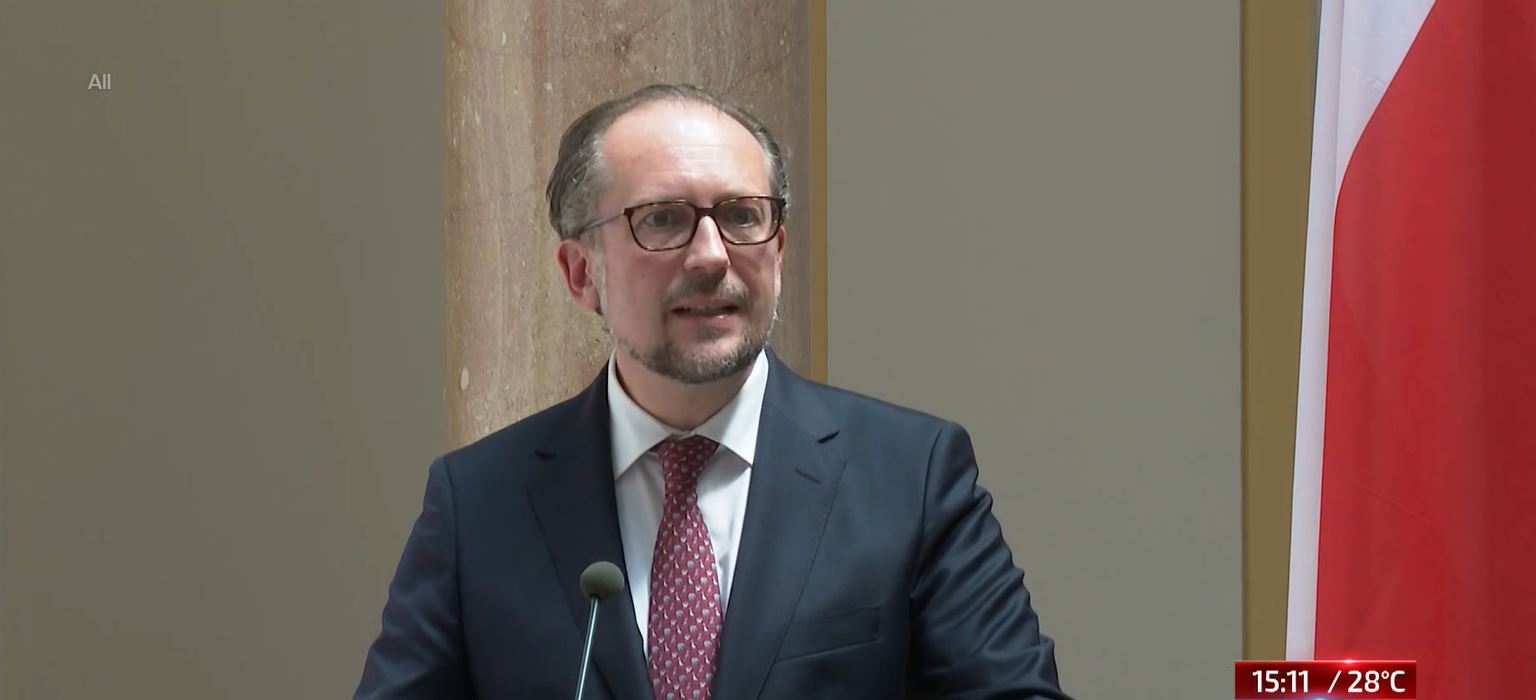Austria's FM: BiH must create conditions where 'Bonn Powers' are unnecessary

The move of the outgoing international administrator in Bosnia, who imposed a ban on genocide denial on Friday, is understandable since the country has regrettably not yet met the conditions that would make the ‘Bonn Powers’ unnecessary, said Austria’ Foreign Affairs Minister, Alexander Schallenberg.
Oglas
Only days before his term in Bosnia is ending, the High Representative of the international community, Valentin Inzko, used his special set of powers – the Bonn Powers – to impose the law.
The law changes that Inzko imposed stipulate prison sentences lasting between six months and five years for anybody who “publicly condones, denies, grossly trivializes or tries to justify a crime of genocide, crimes against humanity or a war crime.”
As of August 1, Germany’s Christian Schmidt will take over the Office of the High Representative (OHR) and continue the task of monitoring the civilian implementation of the 1995 Dayton Peace Agreement in the country.
Schallenberg said he has maintained close contact with Inzko, as well as Schmidt. He said that Inzko used the strong powers he has as High Representative with the intention to create a situation in the country where there is no need for using those powers anymore.
“But in that sense, Bosnia and Herzegovina itself would have to create the preconditions for it to no longer need a High Representative with powers that go very far. And as much as we can understand it being done mentally and emotionally, on the other hand, we regret that such measures had to be resorted to,” he said.
Kakvo je tvoje mišljenje o ovome?
Učestvuj u diskusiji ili pročitaj komentare
Oglas
Kakvo je tvoje mišljenje o ovome?
Učestvuj u diskusiji ili pročitaj komentare
Oglas
NAJČITANIJE
Oglas
Oglas
Najnovije
Oglas
Oglas





 Srbija
Srbija
 Hrvatska
Hrvatska
 Slovenija
Slovenija



























































